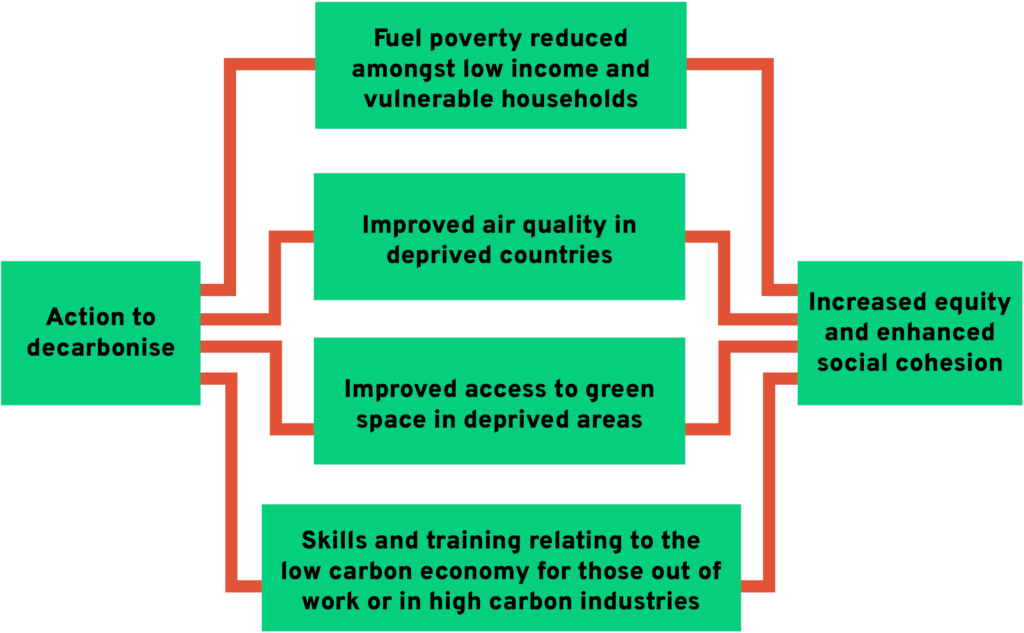How decarbonisation can boost equity and social inclusion

Fuel poverty reduced amongst low income and vulnerable households, improved air quality in deprived countries, improved access to green space in deprived areas, and skills and training relating to the low carbon economy for those out of work or in high carbon industries.
Action to decarbonise can increase equity and enhance social cohesion by reducing fuel poverty, improving access to green space, decreasing exposure to poor air quality.
More Information
On enabling a Just Transition in Chapter 1.4 of this toolkit
Key facts
- 13.4% of households in England (3.8 million people) live in fuel poverty. Single parent households are most likely (28%) to be fuel poor. However, following the energy crisis and regulator Ofgem’s announcement of a rise in the energy price cap, charity National Energy Action predicts that the number of households living in fuel poverty could rise to 6.5 million.
- Low-income households often face the choice between ‘heating or eating’.
- People living in the most deprived urban areas are more exposed to poor air quality than those in less deprived areas.
- In London, NO2 concentrations in ethnically diverse areas are on average between 16% and 27% higher than majority white areas. Racial and ethnic disparities in exposure to air pollution remain even when deprivation is adjusted for.
- In the most deprived groups, the number of mortalities is halved in areas with the greenest space.
- In England, if you are Black, Asian or Minority Ethnic you are more than twice as likely (40%) to live in areas most deprived of green space than white people (14%).
- Community energy projects can deliver economic and social benefits for disadvantaged groups with the potential for significant reductions ins energy bills
Accessing facts that relate to your area
Source:
UK Air – Air Information Resource
Description
A library of data on air quality including local air pollution forecasts and modelled data.
Source:
London Atmospheric Emissions Inventory (LAEI) 2013
Description
Borough-level emissions and concentrations data.
Source:
Fuel poverty sub-regional statistics
Description
Includes local authority-level data on the number and proportion of households in fuel poverty.
Source:
ONS – Excess winter mortality in England and Wales
Description
Excess winter mortality figures by local authority and other demographics.
Previous Section:
Chapter 6 – Equity and social cohesion
Next Section:
6.2 Business Case

